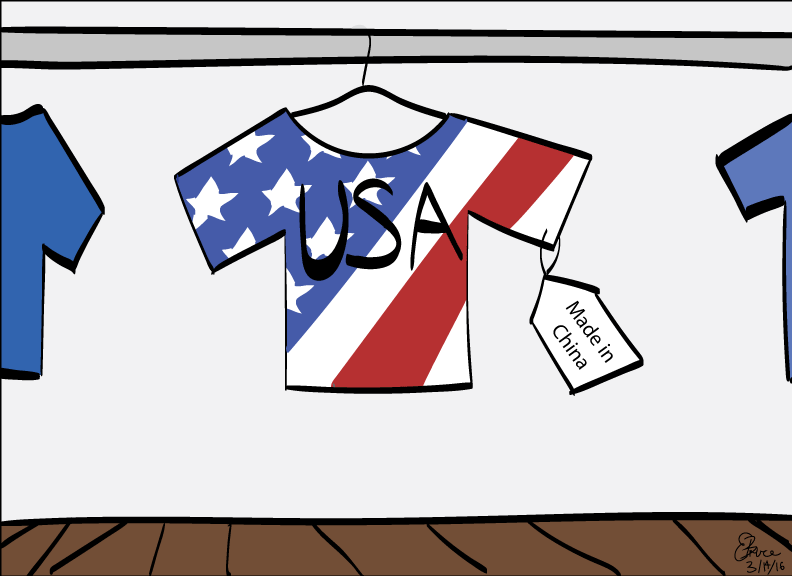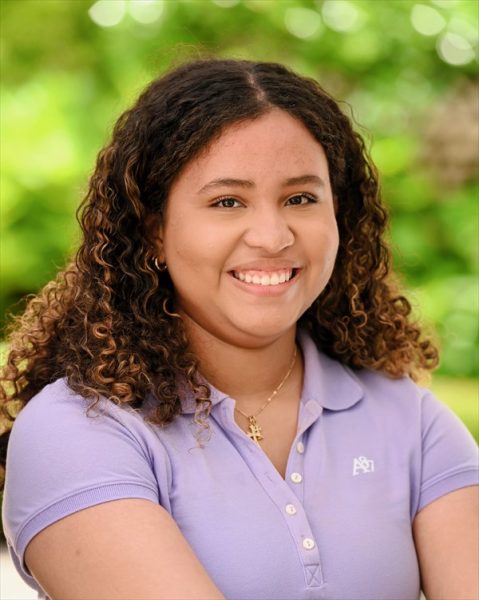Think before you buy
March 16, 2016
You see a $10 shirt in the window and think “What a steal,” not stopping to consider how it can be so cheap, or buy a chocolate bar, inexpensive enough to be purchased with your spare change.
We have all found ourselves at the check-out counter, submitting to the lure of a well-advertised product on a billboard or on TV. The shirt from the window and the bar of candy on the shelf, however, might not be as attractive if we knew the truth about their origins.
Choosing between the shirt that was made ethically in the United States or the shirt that was made by workers who are paid substandard wages is not difficult. All it takes a little effort to look into how popular brands make their products and make a conscious decision not to support the ones that exploit laborers.
The shirt in the window is from Forever 21, and may be one of their products made by workers being paid below minimum wage. The United States Department of Labor found in 2012 that certain Los Angeles sewing factories were violating overtime regulations and paying below minimum wage — Forever 21 included, according to change.org.
Some of the most widely known chocolate brands use child labor to cut down cacao pods that are used for the final product that is sold in the United States. Child laborers can be acquired in West Africa by promising high pay to families in exchange for their children, when in reality the average cocoa farmer makes less than $2 per day, according to the Food Empowerment Project. Hershey’s, Mars, Godiva and Nestle are all brands that have reportedly used these labor tactics.
Teenagers make up a large percentage of consumers targeted by advertisers. We often do not stop to think about the deliberate techniques that are used in advertisements in order to lure people into purchasing unnecessary or unfairly manufactured products.
Whether or not a product is fair trade, an item for which the producers have been paid a living wage, should influence the decision to buy it. Many items are now labeled as fair trade products.
Forever 21 is known for selling inexpensive clothes, but by paying a bit more for ethically produced clothing and by opting for ethically produced chocolate such as TCHO and Dandelion Chocolate, the extra couple of dollars they cost guarantees workers are paid fair wages.
It is our responsibility as global citizens to be aware of what we are buying and join the growing movement to have few items of better quality, made by people who are justly compensated for their work.










